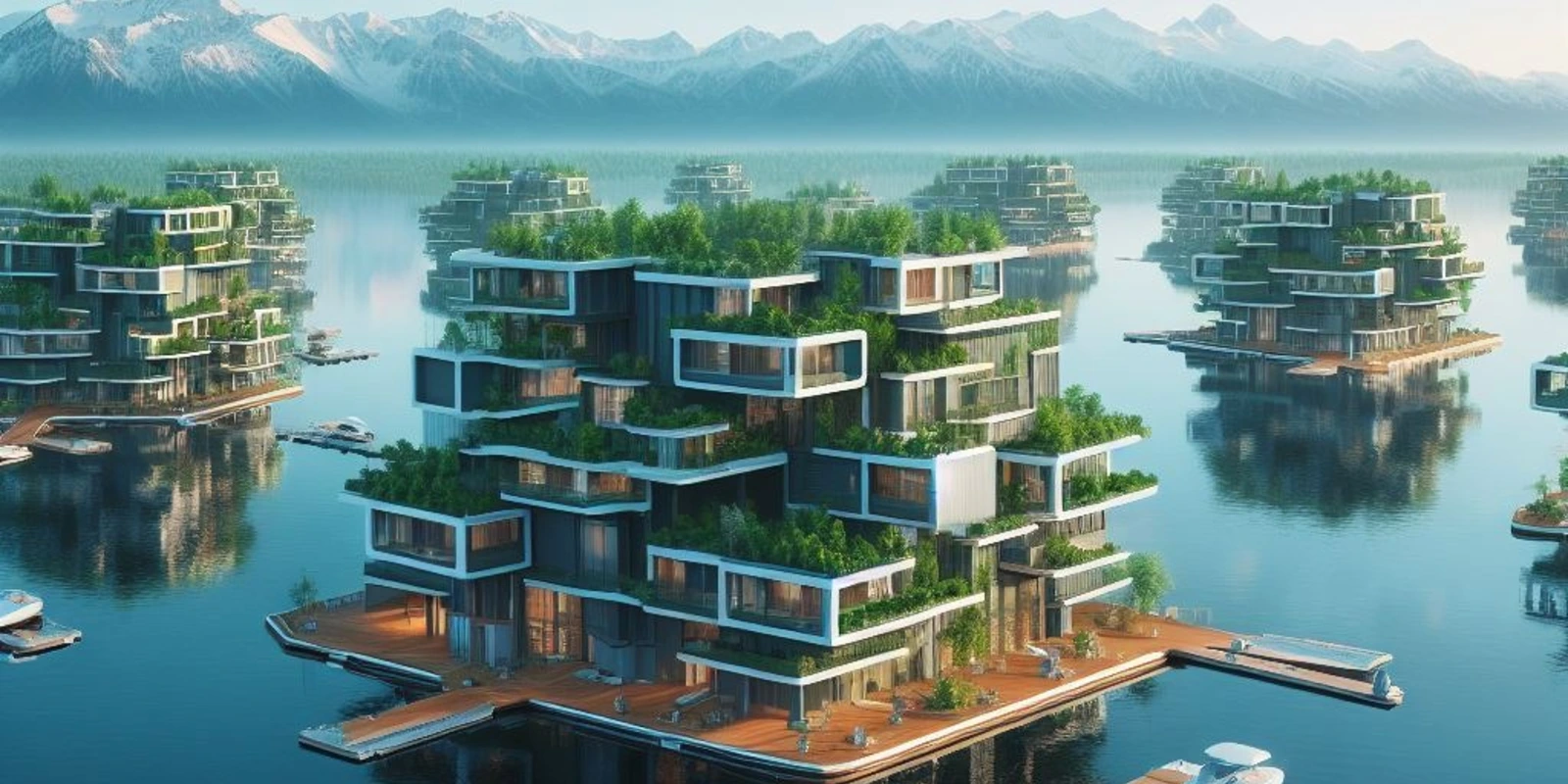
Floating Cities: The Next Frontier in Urban Living

The concept of floating cities, once a realm of science fiction, is fast becoming a feasible solution to some of the most pressing urban challenges of our times. As urban populations continue to grow and sea levels rise, the idea of building sustainable, buoyant communities on water surfaces presents an innovative approach to urban living. This article delves into the potential, design, and sustainability of floating cities as the next frontier in urban development.
Floating cities are essentially human-made islands or platforms that can support residential, commercial, and recreational spaces. The concept is driven by the need to find alternative living spaces that are immune to rising sea levels and land scarcity. These floating structures offer the flexibility of modular construction, allowing for expansion and reconfiguration as needed.
The design of floating cities combines architectural innovation with marine technology. Utilizing buoyant materials and advanced anchoring systems, these cities are designed to be resilient against extreme weather conditions. The integration of renewable energy sources, like solar and wind, along with sustainable waste management systems, is central to the design, making these cities not only self-sufficient but also environmentally friendly.
A key aspect of floating cities is their potential to address housing shortages in densely populated areas. By expanding urban spaces onto water, these cities can provide additional housing options without the need for land reclamation, which often has negative environmental impacts. Moreover, floating cities can be strategically located close to coastal megacities, reducing commute times and easing land-based congestion.
Sustainability is at the core of floating city projects. These communities are envisioned to be carbon-neutral, with a focus on circular economies. For instance, aquaculture and hydroponics could be integrated for local food production, and water recycling systems could be used for water conservation. This approach not only ensures the environmental sustainability of floating cities but also their economic viability.
The challenges in developing floating cities are significant, encompassing engineering, legal, and financial aspects. Building stable and durable structures on water requires advanced engineering techniques and materials. Legally, the establishment of floating cities raises questions about jurisdiction and international maritime law. Financially, the high cost of construction and maintenance is a major consideration for potential investors.
Despite these challenges, several projects around the world are making headway in turning the concept of floating cities into reality. These projects are not only testaments to human ingenuity but also a sign of the shifting paradigms in urban development.
In conclusion, floating cities represent a bold step forward in addressing some of the most critical issues of urbanization and climate change. As technology advances and our understanding of sustainable living improves, floating cities could well become a common feature of our global landscape, offering a visionary approach to urban living.







Your insights and experiences enrich our community. Dive into the discussion and share your thoughts with us below!